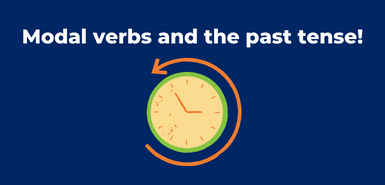This post is in
response to a question from a student about whether it is ever correct to use
"have have" when using modal verbs in the past tense.
The modal verbs we
use when referring to events that have taken place in the past are: could,
would, may, might, should and must.
When constructing a
sentence using modal verbs to talk about the past we use the pronoun and then
have been or have had.
There are situations
when we use the phrase "have to have" in a sentence. It is used to talk about needing something
because it is absolutely essential or necessary.
Here are two
examples:
I have to have an
operation on my elbow. (It is essential
for my health to have the operation.)
I just have to have
that blouse. (I view the blouse to be an
essential purchase based on my desires.)
These sentences can
be changed into the past tense. See the examples below. Notice
how the first have becomes had.
I had to have an
operation on my elbow. (It was essential
for my health to have the operation.)
I just had to have
that blouse. (I viewed the blouse to be
an essential purchase based on my desires.)
See the following
examples below of how to use have been and have had with modal verbs to talk
about the past:
I could have been
very wealthy if I had worked harder.
I could have had a
lot of money if I had worked harder.
You would have had
better health if you had not smoked when you were younger.
You would have been
healthier if you had not smoked when you were younger.
He may have been a
teacher when he was younger.
He may have had a
job as a teacher when he was younger.
She might have been
a doctor if she had had the chance.
She might have had a
career as a doctor if she had had the chance.
It should have been
serviced last year.
It should have had a
service last year.
We must have been to
France at least five times for a holiday.
We must have had
five holidays in France.
You should have been
a lawyer rather than a musician.
You should have had
a career as a lawyer rather than a career as a musician.
They must have been
living in London in the 1970's.
They must have had a
house in London in the 1970's.
All of
the examples demonstrate that in English we use have been or have had with a modal verb to refer to the past and that we NEVER use "have have".

Comments
Post a Comment